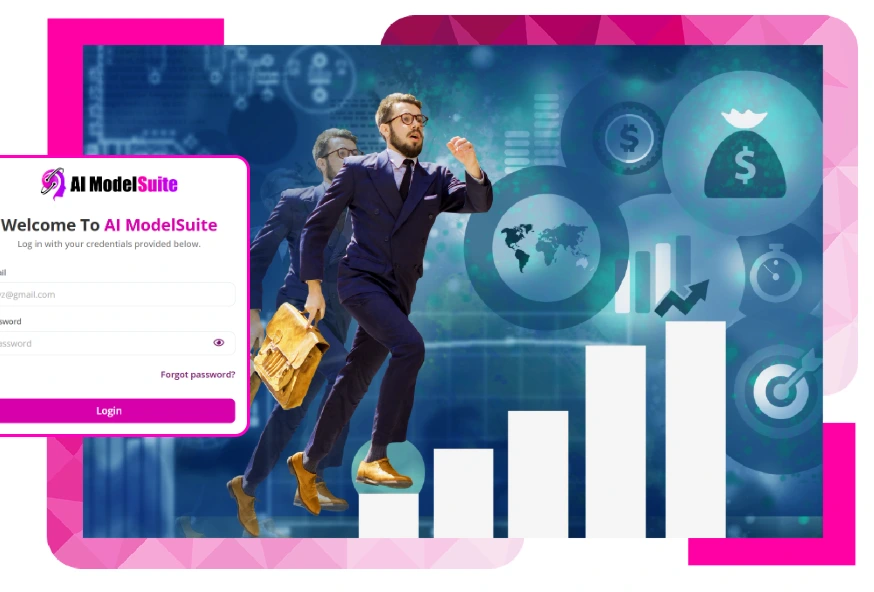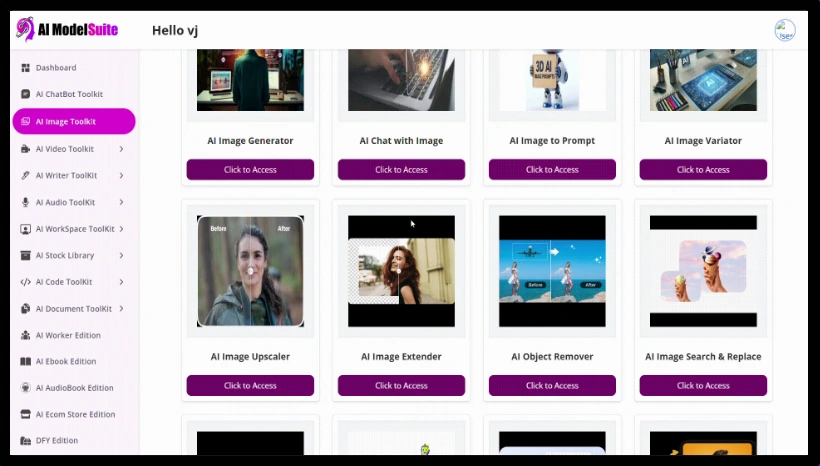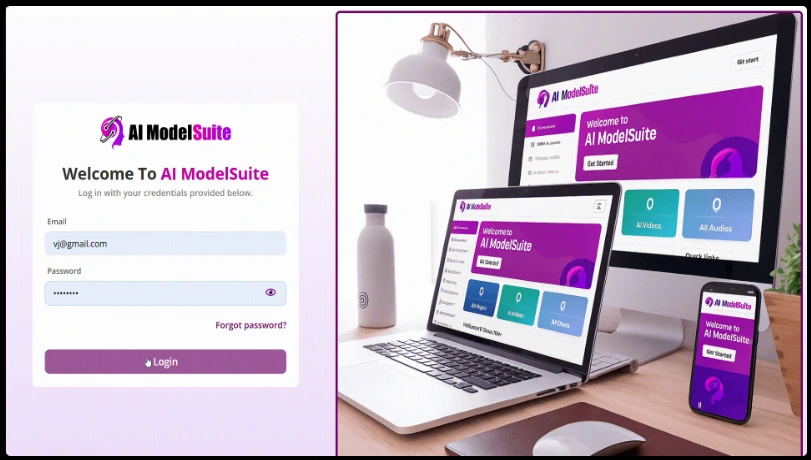AI ModelSuite, AI model management, MLOps, AI deployment tools, machine learning lifecycle, AI automation, enterprise AI, AI infrastructure
🧠 What is AI ModelSuite?
AI ModelSuite is a cloud-native, end-to-end platform for managing, training, deploying, monitoring, and scaling AI and machine learning models. Designed for data scientists, ML engineers, and enterprises, it streamlines the full MLOps lifecycle—from model creation to post-deployment optimization.
Think of it as the “AWS of AI model workflows.”
With built-in tools for data preprocessing, model experimentation, deployment pipelines, API creation, model drift detection, and automated retraining, AI ModelSuite has become a foundational tool in the modern AI stack.

🌍 Why AI ModelSuite Matters in 2025
In 2025, over 65% of enterprise AI projects fail before reaching deployment due to fragmented workflows, lack of scalability, and poor model governance.
AI ModelSuite solves this by offering:
- Unified dashboards
- Reproducible pipelines
- Real-time monitoring
- Scalable cloud/hybrid deployments

📈 Market Stats (2025)
| Metric | Data |
|---|---|
| AI market size | $541B+ (Gartner, 2025) |
| AI adoption in enterprise | 80% (Statista, 2025) |
| MLOps platform usage | 3x growth since 2023 |
| Cost of failed AI projects | $2.3M avg per org |
AI ModelSuite helps organizations deploy AI faster, smarter, and cheaper.
⚙️ Key Features of AI ModelSuite
Here’s a breakdown of what makes AI ModelSuite stand out:
| Feature | Description |
|---|---|
| Model Versioning | Track, compare, and roll back to any version of your ML model |
| AutoML Support | Build models with minimal code using automated workflows |
| Custom Pipeline Builder | Drag-and-drop interface for model training and deployment |
| Deployment Options | REST APIs, edge devices, containers (Docker/Kubernetes), cloud (AWS, Azure, GCP) |
| Model Monitoring | Alerts for model drift, accuracy drop, data skew |
| Role-based Access Control (RBAC) | Secure collaboration with team permissions |
| Data Lineage Tracking | Track data flow from source to final prediction |
| CI/CD Integration | Integrate with GitHub, GitLab, Jenkins for seamless model updates |
| Multi-Model Orchestration | Run A/B tests, multi-model comparisons, and ensembles |
| GPU/TPU Support | Accelerate training with high-performance compute options |
💡 Benefits of Using AI ModelSuite
Whether you’re a solo data scientist or an enterprise AI team, AI ModelSuite delivers measurable impact.
🔐 1. Centralized Model Governance
Track model performance, audit logs, and approvals from one secure dashboard.
⚡ 2. Faster Time to Market
Deploy AI models 5x faster using pre-built deployment templates and API endpoints.
💸 3. Cost Efficiency
Eliminate redundant workflows and cloud waste with smart resource allocation.
🧪 4. Reproducibility
Ensure model reproducibility for audits, compliance, and continuous improvement.
🔄 5. Automated Retraining
Set schedules for retraining or trigger updates based on performance thresholds.
🤝 6. Seamless Team Collaboration
Data scientists, ML engineers, and business analysts can collaborate within a single workspace.
🔄 How AI ModelSuite Works (Step-by-Step)
Here’s a simplified flow:
Step 1: Data Ingestion
- Upload datasets (CSV, JSON, SQL, Parquet)
- Use connectors (Snowflake, BigQuery, S3)
Step 2: Model Development
- Choose from prebuilt templates or use Python/Notebook
- Use AutoML or custom training
Step 3: Experiment Tracking
- Record metrics (accuracy, F1-score, ROC)
- Compare experiments visually
Step 4: Deployment
- Package as REST API, container, or edge-compatible app
- Push to staging or production
Step 5: Monitoring & Feedback
- Setup drift detection
- View dashboards on model accuracy over time
- Trigger retraining if thresholds are exceeded
⚔️ AI ModelSuite vs Traditional AI Workflows
| Feature | Traditional Workflow | AI ModelSuite |
|---|---|---|
| Model training | Manual, scattered | Centralized, repeatable |
| Deployment | Often custom-coded | 1-click deployment |
| Monitoring | Basic or non-existent | Real-time alerts and dashboards |
| Reusability | Low | High |
| Collaboration | Fragmented | Unified |
| Cost | High | Optimized with automation |
| Scalability | Limited | Cloud-native and scalable |

🏭 Industries Using AI ModelSuite Today
AI ModelSuite is used across various domains:
| Industry | Use Case |
|---|---|
| Healthcare | Predictive diagnostics, patient risk models |
| Finance | Fraud detection, loan scoring, algo trading |
| Retail | Inventory prediction, customer segmentation |
| Manufacturing | Predictive maintenance, quality control |
| Logistics | Route optimization, demand forecasting |
| Energy | Smart grid prediction, failure forecasting |
| EdTech | Personalized learning, dropout prediction |

💰 AI ModelSuite Pricing and Plans
Note: Pricing may vary depending on compute usage and number of models deployed.
| Plan | Price | Best For |
|---|---|---|
| Free | $0/month | Beginners, small experiments |
| Pro | $49/month | Solo data scientists |
| Business | $499/month | AI teams, medium-scale projects |
| Enterprise | Custom | Large orgs, high-scale deployments |
Add-ons:
- GPU instances: +$0.45/hour
- Auto-scaling: Included in Business+
- Premium support: +$99/month
🧪 Real-World Case Studies
🏦 Case Study 1: FinBank Ltd.
Problem: Manual model deployment for fraud detection led to frequent downtimes.
Solution: Integrated AI ModelSuite to automate model pipelines and deploy as APIs.
Outcome:
- 7x faster model deployment
- 33% improvement in fraud detection accuracy
- Saved $1.2M in yearly operational costs
🏥 Case Study 2: MediAI Health
Problem: Difficulty tracking model performance and retraining for patient risk scores.
Solution: Enabled model drift detection and automated retraining via ModelSuite.
Outcome:
- 25% fewer false positives
- HIPAA-compliant model audit trail
- Improved patient outcomes
✅ Pros and Cons of AI ModelSuite
| Pros | Cons |
|---|---|
| ✅ End-to-end model lifecycle | ❌ May have learning curve for beginners |
| ✅ Built-in version control | ❌ Free tier has compute limits |
| ✅ Enterprise-grade security | ❌ Limited offline deployment support |
| ✅ AutoML + Custom workflows | ❌ Requires modern cloud infrastructure |
| ✅ Rich visualization and dashboards | ❌ Not ideal for non-technical users |
❓ AI ModelSuite FAQs
Q1. Is AI ModelSuite open-source?
No, it’s a commercial product but supports open-source model formats like ONNX, Hugging Face, etc.
Q2. Can I deploy AI ModelSuite on-premise?
Enterprise customers can request hybrid or private cloud deployments.
Q3. Does it support LLMs like GPT or Claude?
Yes! You can fine-tune or deploy LLMs using preconfigured large language model templates.
Q4. What programming languages does it support?
Primarily Python, but also supports R, Scala, and Java via SDKs.
Q5. Does it integrate with Jupyter or VS Code?
Yes. You can push/pull models, track experiments, and trigger deployments directly from notebooks or IDEs.

🧭 Final Verdict: Should You Use AI ModelSuite?
If you’re serious about deploying and scaling AI in 2025—AI ModelSuite is a must.
It drastically simplifies complex AI workflows, automates the boring parts, and helps you focus on what matters: building intelligent systems that deliver results.
Whether you’re working solo or running AI at scale in an enterprise—ModelSuite is built to grow with you.
